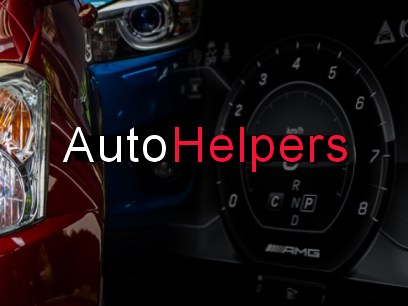Types
Brands
- Acura
- Alfa Romeo
- Alligator
- Apollo Automobil
- Aprilia
- Arch
- Arctic Cat
- Aston Martin
- Audi
- Bentley
- BMW
- Bollinger
- Boss Hoss
- Buell
- Bugatti
- Buick
- Cadillac
- CanAm
- Caterham
- Chevrolet
- Chrysler
- Citroen
- Cleveland CycleWerks
- Curtiss
- Dacia
- Dodge
- Ducati
- Ferrari
- Fiat
- Fisker
- Ford
- General Motors
- Genesis
- GMC
- Harley Davidson
- Honda
- Husqvarna
- Hyundai
- Indian
- Infiniti
- Jaguar
- Janus
- Jeep
- Karma
- Kawasaki
- Kia
- Koenigsegg
- KTM
- Lamborghini
- Land Rover
- Lexus
- Lightning
- Lincoln
- Lordstown
- Lotus
- Lucid Motors
- Maserati
- Mazda
- McLaren
- Mercedes
- Mercury
- MG
- Mini Cooper
- Mitsubishi
- Moto Guzzi
- MTT
- Nikola
- NIO
- Nissan
- Pagani
- Peugeot
- Piaggio
- Polaris
- Polestar
- Pontiac
- Porsche
- Ram
- Renault
- Rimac
- Rivian
- Rokon
- RollsRoyce
- Royal Enfield
- Saab
- Saturn
- Scion
- SEAT
- Ski-Doo
- Skoda
- Smart
- Spyker
- Subaru
- Suzuki
- Tesla
- Toyota
- Triumph
- Vauxhall
- Vespa
- Volkswagen
- Volvo
- Yamaha
- Z Electric Vehicle
- Zero Motorcycles
Article Categories
- Acura News
- Alfa Romeo News
- Aston Martin News
- Audi News
- Bentley News
- BMW News
- Buick News
- Cadillac News
- Car News
- Chevrolet News
- Chrysler News
- Dodge News
- Fiat News
- Ford News
- GMC News
- Honda News
- Hyundai News
- Infiniti News
- Jaguar News
- Jeep News
- Kia News
- Lexus News
- Lincoln News
- Mazda News
- Mercedes News
- Nissan News
- Porsche News
- Subaru News
- Tesla News
- Tips and Tricks
- Toyota News
- Volkswagen News
- Volvo News
More Articles

Rivian Automobile Repairs
If you're looking for help fixing your Rivian Automobile, look no further! Our comprehensive Rivian Automobile repair guide will explain common issues, provide tips, and maybe show you how to repair your vehicle.
Rivian manufactures cars that owners have come to trust. Even a trustworthy autos require occasional maintenance or repair, however. If you’re in need of Rivian Auto repair from experienced professionals, your local Auto Helper can help.
Transmission Fluid Leaks
Your vehicle's transmission requires a special fluid to keep its components well lubricated. In cars with automatic transmissions, transmission fluid also works as a hydraulic fluid and coolant. Throughout your car's life, small holes can form anywhere in this system, such as in the fluid lines, seals, or gaskets. These tiny tears allow transmission fluid to escape, causing a leak. If the leak is bad enough to lower the overall fluid levels, your transmission will lose efficiency and may eventually fail, whether from overheating or internal pressure loss. Leaks can also come from cracks in the transmission pan that collects excess fluid. When that happens, you'll probably see a big red puddle under your vehicle.
Dead Battery
Whether it's repeated cold weather sucking the juice out of your car's battery or you're using it to power something else, dead batteries are one of the most common and easiest things to troubleshoot when it comes to car problems. If the battery's juice is just depleted, simply using some jumper cables to jump-start your vehicle should resolve the issue. Most car batteries last about four years on average but can last for up to seven. Most mechanics, auto service centers, and specialty automotive stores will check your battery free of charge to assess it upon request and help you determine if you need a new one. Otherwise, you may learn of a dead battery the hard way when your car won't turn over.
Excessive Oil Consumption
It's a fact of life: Your car will need fresh oil to stay functioning. However, if you're finding it's needing changes and top-ups more frequently than it should, there might be a problem. Early signs you need to check your oil include a minor dip in performance and the ever-dreaded oil light on your dashboard. When your car is in particularly dire need of an oil change, you may even start to see corrosion in its engine. Another oil-related complaint is the clogged oil filter. You'll probably see this problem if you've waited too long to change the oil. While modern cars come with systems that are equipped with filter bypasses, it's a good rule of thumb to change the filter whenever you change the oil.
Failed Thermostat
An engine coolant thermostat controls engine temperature by blocking coolant flow to the radiator until the engine reaches a predetermined temperature. because of this, the engine can first warm-up efficiently, and then begin to maintain a safe operating temperature once the thermostat opens and allows coolant to circulate. When a thermostat fails, it can either stick open or closed. in both cases, you may find that the heater doesn't blow warm air into the passenger compartment. a thermostat that is stuck open makes it difficult for the engine to warm up and can cause it to run colder than normal.
Minor Leaks
Smaller leaks may be less urgent, but they still will require your attention. if the source of your oil leak is the oil filler cap, you can buy a replacement at your local auto parts store, or a dealership parts department. If your leak is coming from the oil filter, and you know how to change your oil, you can replace the filter with a new one. after you drain the old oil, remove the old filter and make sure its seal doesn’t stick to the engine. then thread the new filter on carefully and tighten it securely. be sure to correctly insert and tighten the drain plug, as well. then add the new oil.
Broken Starter Motor
The starter motor is responsible for cranking your engine over, which begins the starting process. When this component fails, it’s usually because the electrical solenoid has been damaged, the starter motor breaks or another electrical fault occurs – like a starter relay, for example. While a starter can be replaced before it breaks, it’s difficult to predict when this will happen. It’s best to have a car-starting inspection to determine the problem before assuming it's the starter.
Worn Seals or Gaskets
If your vehicle has worn out or damaged crankshaft seals or valve cover gasket, then it will likely be leaking oil. Once that happens, your engine will be losing oil whenever you’re driving. This means you will need to constantly top off the engine oil to avoid engine damage. If you have seals or gaskets that are leaking oil, get them fixed asap. Usually, it’s a fairly inexpensive process that will save you a lot of money in the long run.
SOURCE: https://www.yourmechanic.com/article/top-12-most-common-car-problems-and-issues
Related Error Code Pages:
Rivian Automobile Error Codes,
Related Troubleshooting Pages:
Rivian Automobile Troubleshooting,
Related Repair Pages:
Rivian Automobile Repairs,
Related Parts Pages:
Rivian Automobile Parts,
Related Price Pages:
Rivian Automobile Prices,

